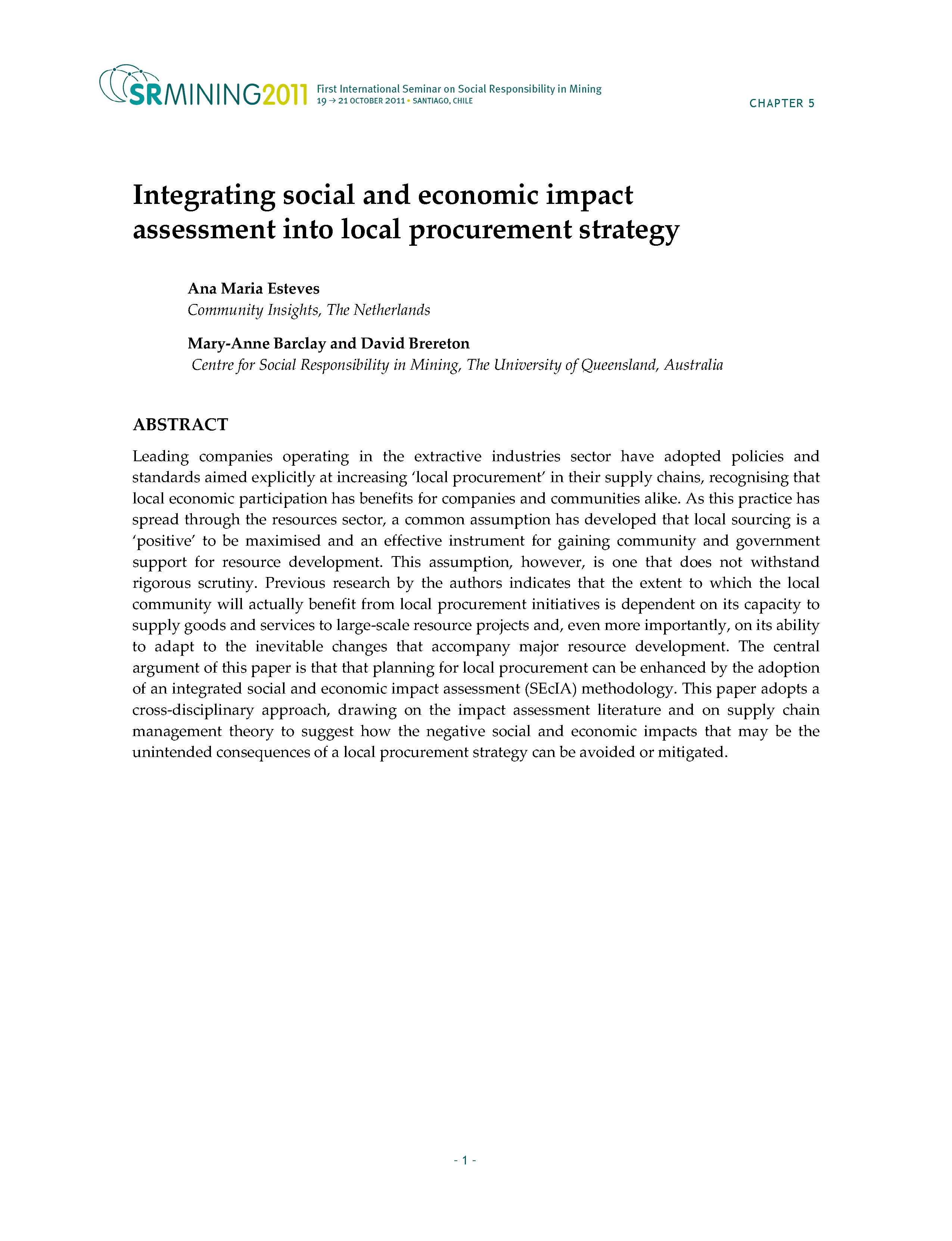Integrating social and economic impact assessment into local procurement strategy
Leading companies operating in the extractive industries sector have adopted policies and standards aimed explicitly at increasing 'local procurement' in their supply chains, recognising that local economic participation has benefits for companies and communities alike. As this practice has spread through the resources sector, a common assumption has developed that local sourcing is a 'positive' to be maximised and an effective instrument for gaining community and government support for resource development. This assumption, however, is one that does not withstand rigorous scrutiny. Previous research by the authors indicates that the extent to which the local community will actually benefit from local procurement initiatives is dependent on its capacity to supply goods and services to large?scale resource projects and, even more importantly, on its ability to adapt to the inevitable changes that accompany major resource development. The central argument of this paper is that that planning for local procurement can be enhanced by the adoption of an integrated social and economic impact assessment (SEcIA) methodology. This paper adopts a cross?disciplinary approach, drawing on the impact assessment literature and on supply chain management theory to suggest how the negative social and economic impacts that may be the unintended consequences of a local procurement strategy can be avoided or mitigated.
Publisher: SR Mining 2011
CITATION
Brereton, D, Barclay, MA. & Esteves, AM. 2011. Integrating social and economic impact assessment into local procurement strategy. SR Mining 2011

